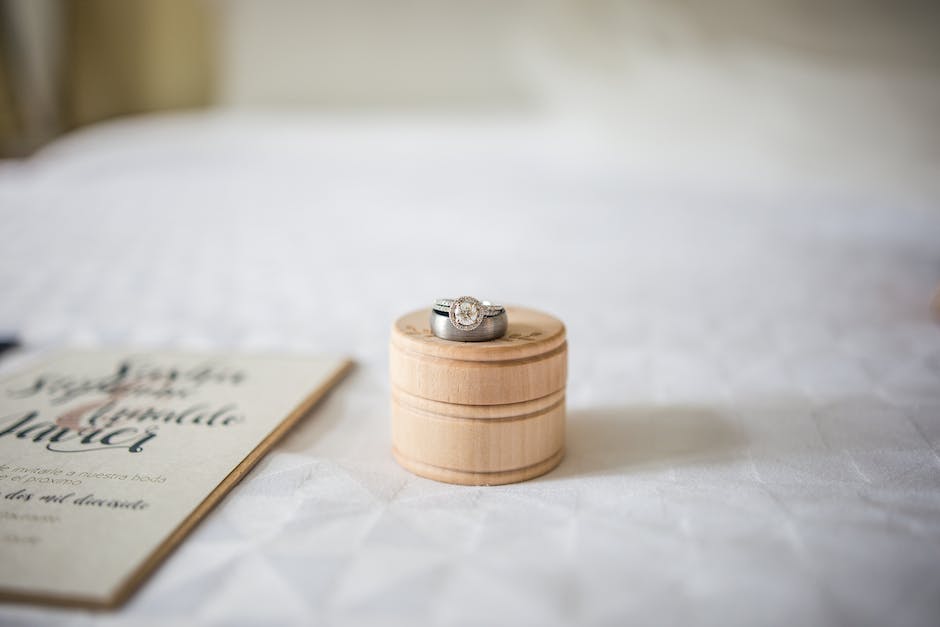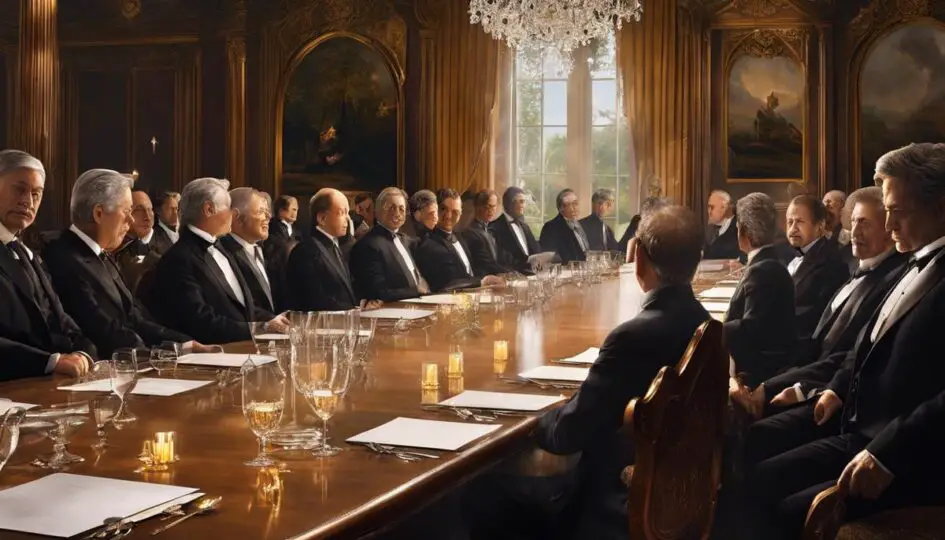When the delicate matter of declining a wedding invitation arises, it is paramount to navigate the situation with tact and grace. The art of saying “no” to such an important event without offending the hosts is a nuanced dance of social etiquette. It begins with understanding the fundamental principles of polite refusal—timing your response, adopting an appropriate tone, and deciding on the most suitable medium for your message. This essay will explore how to formulate a believable and respectful excuse for not attending a wedding. In doing so, it will provide guidance on preserving the warmth and strength of your relationships through thoughtful communication and genuine expression of regret.
Etiquette for Declining Invitations
Declining Wedding Invitations with Grace: A Guide to Etiquette in the Modern Age
In the realm of social decorum, responding to wedding invitations with tact and consideration is paramount. The act of declining such an invitation, while personal, warrants a thoughtful approach, respecting both the significance of the event and the sentiments of the hosts. Herein, we delineate the proper etiquette to decline wedding invitations, providing a step-by-step guide to navigate this social intricacy.
Understanding the Sensitivity
Weddings symbolize a profound milestone in an individual’s life, often encompassing heartfelt planning and investment. Recognizing the sensitivity involved, one should approach the process of declining with equal measures of honesty and empathy. An impeccable blend of respect and clear communication forms the cornerstone of this delicate interaction.
Crafting the Response
Swift Response:
Upon receipt of the invitation and clarification of one’s inability to attend, promptly preparing the response is a courtesy to the marrying couple. This expediency provides the hosts with ample time to adjust their preparations accordingly, a gesture of understanding for the complex orchestration behind a wedding.
Written Form:
While contemporary communication channels abound, penning the response traditionally — by mail — remains the most respectful option. A handwritten note conveys a personal touch and appreciation for the invitation, fostering goodwill between the parties involved.
Tone and Content:
Precision:
The message should be direct yet courteous, omitting unnecessary justifications or overly detailed explanations. One is not obliged to disclose the specific reasons for the inability to attend, though a brief mention of “prior commitments” or “unavoidable circumstances” can suffice if one feels inclined.
Gratitude:
Commencing the note with the expression of gratitude underscores the honor felt upon receiving the invitation. It reflects an awareness of the emotional weight carried by the occasion, reinforcing the bond between the correspondent and the host.
Regret:
The inclusion of regret demonstrates one’s desired attendance and the weight of the decision to decline. This acknowledgment offers solace to the hosts, thereby preserving the relationship.
Finality:
Concluding the communication on a definitive note avoids potential confusion. Reiterating the congratulations and well-wishes for the couple’s future endeavors imparts warmth and ends the correspondence gracefully.
An Exemplar Etiquette for Modern Nuptials
In our modern age, when wedding celebrations assume myriad forms and familial ties stretch across the globe, the protocols surrounding wedding etiquette must be both adaptable and steeped in tradition. Upholding the principles delineated herein ensures a harmonious societal fabric, woven with respect and sensitivity.
Thus, to respectfully decline a wedding invitation, one should promptly and personally convey their regrets in written form, maintaining a balance of grace and unequivocal clarity. Through these guiding tenets, we nurture the relationships at the core of these celebrations, honoring the significance of the occasion while gracefully acknowledging our absence.

Crafting a Believable Excuse
Crafting a Credible Reason for Wedding Absence
Navigating the Delicate Terrain of Wedding Excuses
Weddings are cornerstones of societal ritual, embodying both joy and formality. When one decides to decline such an invitation, tactfulness and credibility are paramount. Crafting a believable excuse is not merely an exercise in creativity; it requires an understanding of interpersonal dynamics and cultural norms.
Step 1: Assess Your Relationship with the Couple
Understanding the depth of your relationship with the couple is instrumental. It shapes the expectations and the tolerance for your absence. For acquaintances or distant relatives, your presence may be less critical than for close family or friends.
Step 2: Personal Commitments and Prior Engagements
One universally accepted reason is the existence of prior commitments. This could be a conflicting event that cannot be rescheduled, such as a significant work commitment, educational pursuits, or another wedding. Detailing an existing obligation displays respect for the couple’s time by showcasing that your schedule is effectively managed.
Step 3: Health and Wellbeing Concerns
Health is often an uncontestable cause for nonattendance. Communicating a genuine health-related issue, whether it’s a medical appointment or a condition that restricts travel, can suffice as a legitimate excuse—provided it reflects an authentic concern.
Step 4: Financial Constraints
Discussing financial limitations can be delicate, yet it remains a valid obstacle. It may be prudent to express that current fiscal responsibilities—such as debt repayment or saving for a milestone—preclude the possibility of incurring the expense of travel and gifts associated with wedding attendance.
Step 5: Family Obligations
Family always takes precedence, and declaring familial obligations is both honorable and convincing. Whether caring for an ailing relative, attending to parental duties, or engaging in significant family rites, these situations hold considerable weight in excusing one’s absence from a wedding celebration.
Implementing the Strategy
Upon deciding on the most appropriate and truthful excuse, the articulation of this reason must be handled with finesse. Communicate your regret with a sincere but concise message—either verbally or in written form, depending on the context and your relationship with the couple. Emphasize your well-wishing for their union and, if genuine, express a desire to celebrate with them in an alternative setting at a later date.
Understanding the gravity of wedding events and the need for sincere communication, one must craft a respectful and plausible excuse. The intertwine of respect, honesty, and cultural awareness form the crux of generating a credible reason to decline a treasured wedding invitation.

Conveying Your Message
Navigating the Etiquette of Conveying Regret: The Compassionate Declination of Wedding Invitations
In the nuanced dance of social interactions, declining a wedding invitation is a delicate maneuver that requires a harmonious blend of sincerity and diplomacy. Wedding invitations carry a weight of expectation and sincere desire for shared celebration, making the act of refusal a potentially sensitive undertaking.
Conveying Declination with Tact
Etiquette in communication, especially regarding declining a wedding invitation, remains a cornerstone of respectful societal exchange. Crafting a declination message with tact involves several key elements:
- Immediate Acknowledgment
Postponing the delivery of a regretful response breeds anxiety for both the couple and the invitee. It is imperative to address the invitation promptly, indicating a recognition of its importance and an appreciation for the couple’s consideration.
- Personal Touch
Even in an age of digital correspondence, a personal touch carries significant weight. Whether it is through a handwritten note or a thoughtful email, personalizing the message imbues it with warmth and genuineness.
- Expressing Sincere Regret
Genuine sentiment, articulated without vagueness, communicates respect. Employ phrases that unambiguously reflect regret for missing such an event while steering clear of overly detailed justifications.
- Well Wishes
A message of declination should always include a sincere wish for the couple’s happiness. This reinforces the idea that, although not in attendance, the invitee’s goodwill remains present.
- No Room for Reconsideration
To prevent any misunderstanding, it is essential to ensure the message conveys finality. A clear but kind phrasing eliminates any expectation or hope of potential attendance.
Impact of Cultural Considerations on Declination
Understanding cultural norms in the setting of weddings is paramount. Different cultures imbue varying degrees of formality and sentiment into wedding celebrations. Therefore, it is crucial to craft a declination message that respects those cultural nuances, recognizing that what is polite in one context may not align with another.
Balancing Honesty and Respect
When offering a reason for not attending, balancing honesty with respect is a tightrope walk. The provided excuse should be truthful yet mindful, avoiding unnecessary depth that may lead to discomfort or inadvertently cause offense.
In sum, declining a wedding invitation mandates a consideration of several factors—cultural context, relationship dynamics, personal constraints—all of which converge to inform an admirably crafted message of regret. Adhering to these principles of tact and empathy upholds the integrity of societal exchanges and nurtures the web of relationships within which individuals navigate, preserving harmony while honoring personal boundaries.

Mastering the skill of politely declining wedding invitations, with honesty and sensitivity, is a testament to one’s consideration for the feelings and efforts of others. A well-expressed regret is not only a mark of good manners but also a testament to the value we place on our personal bonds. By choosing our words carefully and respecting the significance of the occasion, we honor the couple’s special day while staying true to our own circumstances. Ultimately, the most important gift we can offer may not be our presence at the celebration but rather the continued support and affection that our relationships are built upon.


Recent Comments